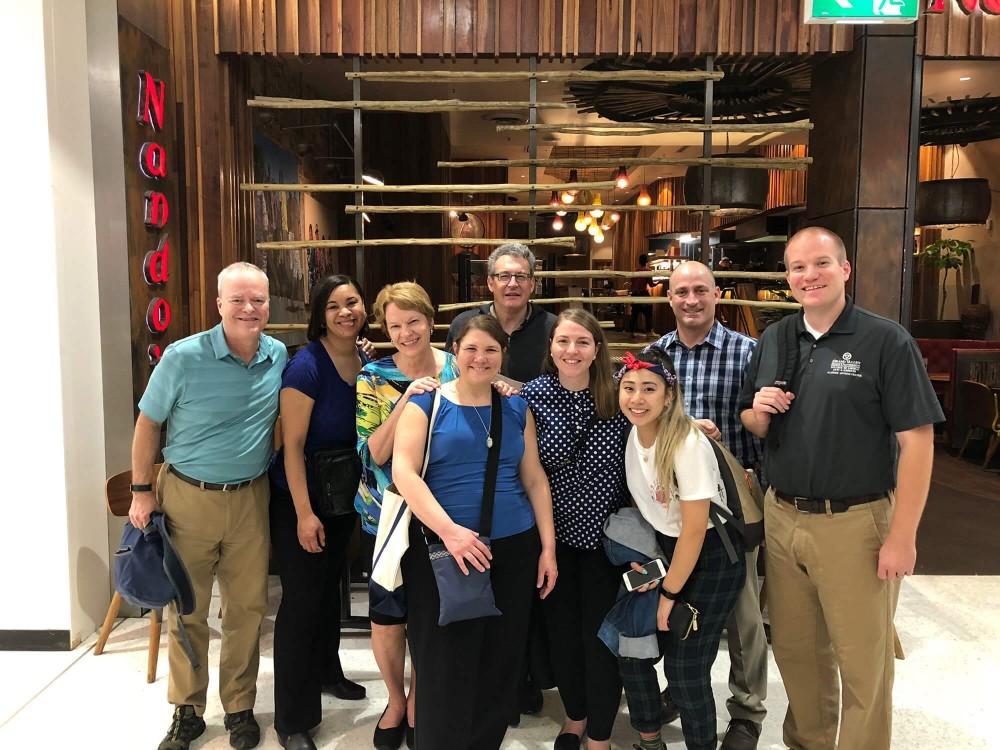Padnos International Center Partnership Delegation to visit Romania

Courtesy / GVSU.edu
Jan 7, 2019
In May, a delegation of six Grand Valley State faculty and staff members will be traveling to Romania as part of the Padnos International Center Partnership Delegation to visit the University of Babes-Bolyia. Here, the faculty plans on spending time and building relationships with colleagues from partner institutions.
Delegation organizer and leader Rebecca Hambleton said that for the last ten years, GVSU staff and faculty has been attending universities partnered with our own so that there is a significant potential for growth all around.
According to the 2019 Partnership Delegation Program’s Learning goals for 2019, the trip is extremely important because it introduces faculty and staff to Romanian culture with an emphasis in increasing participants’ knowledge of historical, economical, educational, environmental and social developments.
The trip will give faculty and staff opportunities to develop intercultural communication skills and intercultural understanding, as well as develop a new network of colleagues from across the GVSU campuses and at partner institutions. This helps faculty and staff gain a broad yet personal understanding of the study abroad programs that they can share with their students.
“GVSU wants to provide the best opportunities for our students, which includes a wide range of high impact experiences,” Hambleton said. “Study abroad is an important opportunity that helps our students grow personally, academically and professionally.”
Beyond creating opportunities for students in the future, these trips strengthen GVSU’s relationships with international communities through the staff and faculty that attend.
“We want to involve as many faculty and staff in these opportunities so they can be a good resource for students, as well as develop their own intercultural understanding,” Hambleton said.
“GVSU also strives to be a welcoming and inclusive community. Each year, we are welcoming international students and scholars from around the world. Many of these students are coming from our partner institutions. Having faculty and staff who are familiar with our partners and other cultures helps those students feel supported and welcomed while they are here.”
Delegation trips have been crucial in maintaining GVSU’s status as a top institution in sending students abroad to study.
“(These trips) create a unique connection that goes beyond offering administrative and academic support,” Hambleton said. “GVSU has been in the top 16 Master’s institutions in the country sending students abroad for the past 16 years. Seven of the past 16 years, we have been in the top 10. We got to this level of success because of the support from faculty and staff across this institution.”
The delegation allows GVSU staff and faculty to be better informed of study abroad expectations, gaining insight that they can share with students later on. Hambleton said that building a relationship with partner institutions directly impacts all foreign exchange participants.
“The better we know and understand our partner, the more successful we will be at promoting these opportunities, preparing students and addressing any concerns that may arise,” Hambleton said.
“Students often want to know about the housing options, course options, how to get to the institution upon arrival, what opportunities are available for meeting other students, what is the campus like, how are classes structured, how will they get around town, who the in-country contacts are (and more). These visits help us learn about the partner and local community, so we can share that information with future participants.”
That said, the partnership is a two way street, with similar visits coming from a partner institution following an initial delegation being sent.
“Additionally, we often see reciprocal visits from our partner institutions,” Hambleton said. “In most cases, there are campus-wide programs here on where students have an opportunity to learn from our international colleagues who are experts in their field and bring a different perspective. These connections happen because we spend a lot of time developing the relationship with our partners. The delegations help us expand those connections and involve many more people in the program. Once people become connected to our exchange, we often find they put forth a lot of effort to see the partnership succeed.”
The Romania delegation follows the current format, which gives priority to applicants who have no prior international traveling experience. A shared goal of the program is to put a very diverse group of people onto the delegation so that there are various perspectives shared toward positive, long-term relationships and collaborations with GVSU’s partners.
This year will be the last year in which the current format of the trip remains, according to a GVSU press release on the trip.
The new format, starting in 2020, will still push for diverse participants, but each department will be required to identify a project coordinator who will work to identify goals and objectives for the international project that will align with the international goals of that department.






















